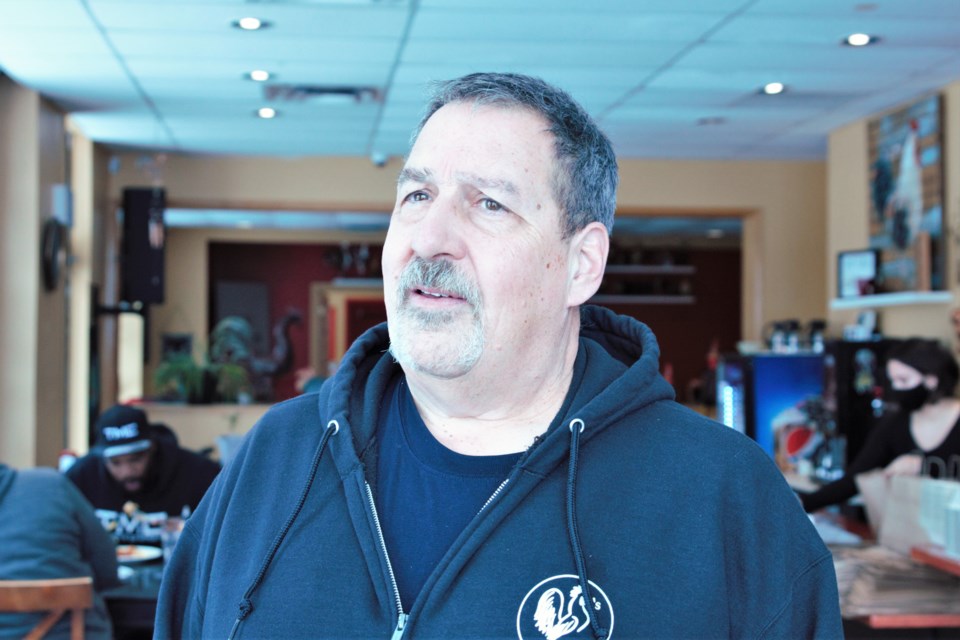THUNDER BAY — Local business leaders say the removal of vaccine passport requirements in Ontario on March 1 is a hopeful sign the province is on a path to recovery.
The system, put in place in September, required businesses to verify proof of at least two vaccine doses before allowing customers entry to restaurants, gyms, theatres, and other non-essential indoor settings.
Businesses can still choose to keep the requirement in place, though there was little indication Monday that many, if any, local businesses will opt to take that step.
“Businesses are telling me that, for the majority, they’re very happy to see the end of the vaccination requirement," said Charla Robinson, president of the Thunder Bay Chamber of Commerce. "It certainly was a lot of extra work for them, a delay at the doors, and a little more confrontational sometimes for their staff.”
A small number of businesses are considering whether to continue requiring proof of vaccination for activities seen as higher risk, especially if they involve youth, Robinson said, but she wasn't aware of any that had firmly made that decision.
“I have heard from some businesses that are having those conversations with their clients, in more of the physical activity type areas — gymnastics and dance studios — and looking to their clients to determine where their comfort level is. But I haven’t heard of anyone in particular saying they’re continuing with the passport at this time.”
Robinson acknowledged some customers may be more hesitant to enter businesses without the guarantee other customers are vaccinated, mentioning those with immunocompromising conditions as an example. It will be up to businesses to work with their customers to determine the best accommodations as public health measures ease, she said.
Jim Comuzzi, owner of North End eatery Rooster’s Bistro and chair of the Waterfront District BIA, called the move away from the vaccine passport system “very welcome news” and a sign the industry is on its way to a “new normal.”
The requirement kept some customers away, he said, in some cases even customers who were vaccinated but didn’t have documentation with them or struggled with the technology.
“I know that during the last few months, we’ve had to turn people away,” he said. “There are some people who are unvaccinated, or didn’t have the passport or the QR code, who have been reluctant to come and try.”
“Now everybody can come in again, there’s no restrictions, vaccinated or unvaccinated.”
Comuzzi is hopeful the lifting of the passport system won’t in turn drive those more cautious about COVID-19 away.
“I don’t think it will deter people too much,” he said. “We’ve gone over and above, we’ve educated ourselves, we’ve educated our customers.”
Despite all capacity limits in indoor public settings also lifted March 1, he said his business will continue to remain below the cap.
“We’ll keep our protocols here a little bit different,” he said. “We’re not going to put in more tables and try to jam people in as we did in the past. We’re still going to adhere to a bit of social distancing and the sanitizing techniques this pandemic has taught us.”
“We still really feel we have to be cognizant of other people’s space, and not try to go too far, too quickly.”
The lifting of those major public health restrictions may not have an immediate and drastic impact on business, Comuzzi said, but it’s an encouraging sign for the summer ahead.
“I think we’re all just excited we’re getting through this stage in late winter,” he said. “Once we get through the next two or three months and we open up the outside… I think we’re on our way to recovery.”
Public health experts have emphasized that vaccination remains the most powerful tool to protect people and communities against COVID-19, and strongly encouraged those eligible, particularly older adults, to get a booster dose.
Vaccine requirements will continue in settings including long-term care and health care, while masking remains mandatory indoors, though provincial leaders have hinted further announcements on that front could arrive in the coming weeks.
— TBNewswatch




